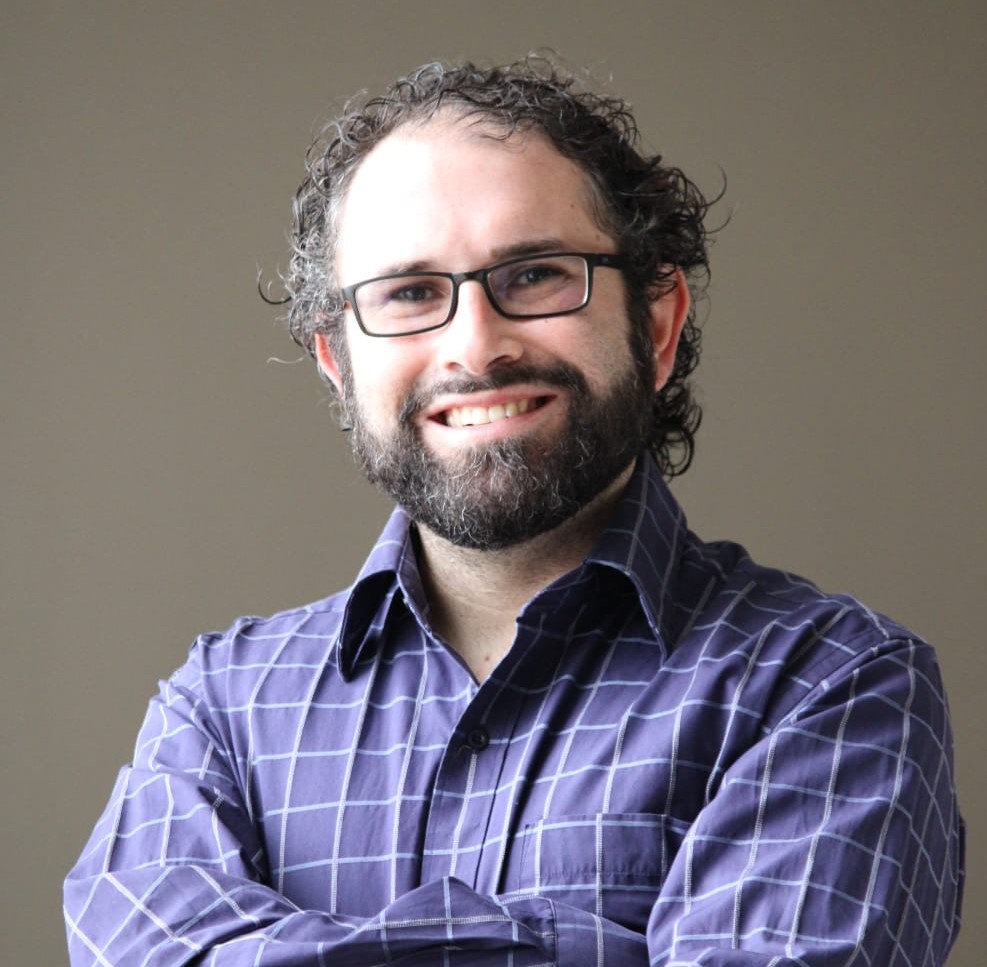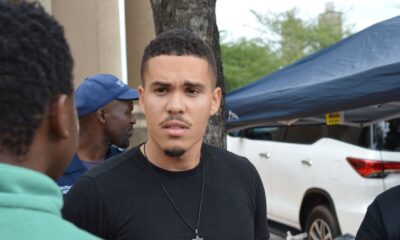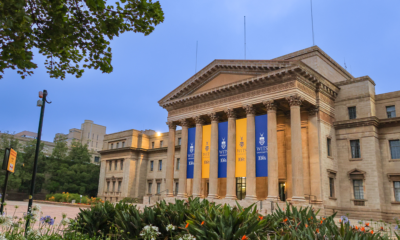
Featured Item

AI prof wins grant for teaching robots a thing or two
Artificial intelligence (AI), machine learning, and robotics are all in a day’s work for Professor Benjamin Rosman, one of 18 early-career researchers in the world to be selected for the prestigious CIFAR Azrieli Global Scholars programme for 2022-2024.
This programme is unique in that it provides $100,000 (R1.6 million) in unrestricted research support to pursue high-risk, high-reward ideas.
Rosman is passionate about growing AI education across Africa, and highly recommends going into this field, which he believes is “the most exciting thing that anyone could work on.
“There are very important ramifications that AI can have in every sphere of life, ranging from affecting our understanding of intelligence as a scientific question, to resolving problems such as climate change and poverty,” he says.
Chosen for their outstanding early-career research in diverse fields, being a CIFAR Azrieli Global Scholar gives researchers like Rosman the freedom to take the kinds of intellectual risks that are essential for creating truly transformative knowledge. The CIFAR is a Canadian-based global research organisation, and this year, it’s commemorating 40 years of exploration of the most pressing questions facing science and humanity.
Describing himself as a “very proud South African”, Rosman grew up in Johannesburg, and went to Crawford, matriculating in 2003. “I then went to Wits [the University of the Witwatersrand] where I did a BSc Honours in computer science and a BSc Honours in applied mathematics. I was really interested in computers and possibly going into gaming. But then I discovered that I was really excited about the science itself. I chose to study abroad – I wanted to do a Masters and there weren’t any opportunities to do that in my field of interest in South Africa. So I ended up doing my Masters at the University of Edinburgh, and then a PhD there as well. It has one of largest computer science departments in the world, and it was a really exciting environment to be in.”
Rosman chose to come back and contribute all that excitement and expertise to his home country. “I always wanted to come back to South Africa. I had to go abroad to study, but I wanted others to have the option to work in these fields – AI, machine learning, and robotics – in South Africa. So I’ve dedicated a lot of my time to working on that – to growing the African machine learning community through a number of initiatives, such as the Deep Learning Indaba.” The organisation, of which Rosman is a founder, works towards the goal of Africans being not only observers and receivers of ongoing advances in AI, but active shapers and owners of these technological advances.
Rosman was selected from more than 200 eligible applications from 32 countries for the Global Scholars programme. Recently promoted to full professor in machine learning and robotics in the School of Computer Science and Applied Mathematics at Wits, he also runs the Robotics, Autonomous Intelligence and Learning Laboratory, and is director of the National E-Science Postgraduate Teaching and Training Platform. In 2017, he was the recipient of a Google Faculty Research Award in machine learning, and a 2021 recipient of a Google Africa Research Award. In 2020, he was made a senior member of the IEEE (the Institute of Electrical and Electronics Engineers), the world’s largest technical professional organisation for the advancement of technology.
His research asks how the knowledge gained from robots and other artificial agents solving one task can be reused in the next by drawing insight from humans’ ability to decompose complex problems into reusable pieces.
“What I’m really interested in is autonomous decision making, which is being able to have a machine learn to make decisions,” he says. “These could be single decisions or long sequences of decisions. At their core, these decisions are about what it means to be intelligent. A lot of the specific work that I do is around the idea of being able to generalise knowledge. So, if my robot has learned to solve one problem, how does it use that experience to speed up learning the next problem?
“A lot of this comes down to the question of what kinds of transferable knowledge can it learn about the world that can help it solve multiple problems,” he continues. “And in many cases, this is like a skill. So I’m really excited about this idea of learning generalised knowledge, and this is what I work on with my lab of fantastic colleagues and students.
“It’s a real honour to receive this recognition from CIFAR, an organisation that has played such an important role in science, particularly AI, and I’m excited about the opportunity to work with global thought leaders in many different fields and receive mentorship from one of the most influential networks of scientists,” says Rosman.
“This award recognises the novel work we’re doing in AI and machine learning in my lab, and confirms the calibre of the cutting-edge research conducted at Wits,” he says. “This advances the science and reputation of Africa in the field. The funding will be useful for everything from trying to buy more equipment for our labs to funding students travelling to international conferences.”
Asked what exciting developments we can expect in the next five to 10 years, he says, “In the near future, we’re going to see more robots enter the workplace and home to assist people with challenging and mundane tasks.
“AI is one of the most powerful tools we can have in our arsenal to deal with the world’s challenges. I would really encourage people to go into this field, and they can be confident that this is something achievable. You don’t need to be at one of the fanciest universities to be engaged in this community. You can do this from anywhere, and in fact, this is what we’re doing. In preparation, you would need to study science and be comfortable with mathematics and programming. Above all, you must have passion and a curiosity for development, science, and trying new and interesting things.”
Looking back, “my upbringing really drove home the value of community. It’s important to acknowledge where you came from, give back, and help the next generation to fulfil their dreams, and to help them realise that there are goals that they might not realise are attainable. This is what I try and do in my job as an academic, as someone training young people, as a teacher, and as an educator.
“Many of my students collaborate with people all over the world, and I constantly hear from them just what high quality students we have coming from South Africa,” he says. “This is something to be aware of, because I think it’s very easy to feel hopeless about the future. But when you work with the youth, it’s easy to be inspired.”










